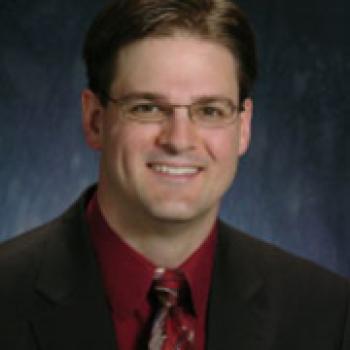Biography
Todd Munson is currently working on developing numerical optimization methods for high-performance architectures in the PETSc/TAO library and applying these methods to solve challenging problems with, for example, partial differential equation constraints and discrete values; and is Deputy Director for the ECP Co-Design Center for Online Data Analysis and Reduction (CODAR).
His current and past development work includes the following:
- Lead developer of PATH, a generalized Newton methods for solving complementarity problems. PATH is based on the normal map formulation of complementarity problems. At each iteration, a linear complementarity problem is solved to calculate a direction. The code is globalized by using the Fischer-Burmeister merit function. The method is enhanced with preprocessing techniques that remove variables and constraints from the given problem, and uncover polyhedral variational inequality structure; nonmontone search criteria; and crashing methods to identify good active sets.
- Lead developer for the Toolkit for Advanced Optimization (TAO), which provides scalable algorithms for unconstrained and bound-constrained optimization problems and variational inequalities. Parallel versions of the semismooth methods for solving nonlinear complementarity problems that he wrote are available in TAO.
- Contributor to MINOTAUR, the Mixed-Integer Nonlinear Optimization Toolkit, a toolkit for solving mixed-integer optimization problems to global optimality that contains many algorithms, underestimation techniques, and relaxation methods.
- Developer of special-purpose algorithms for solving support vector machine and mesh shape-quality optimization problems. The structure of the linear support vector machine problem enabled him to write tailored linear algebra in interior-point and semismooth algorithms so that they can solve extremely large instances (on the order of 60-100 million degrees of freedom).
- Former developer and administrator for NEOS, the Network Enabled Optimization System, a multi-institutional effort to provide numerical optimization methods as a service. This system provides access to more than fifty academic and commercial numerical optimization packages through an assortment of interfaces, including the Kestrel system he helped develop that enables users to seamlessly submit problems generated by a local modeling environment and implement rudimentary parallel algorithms. By the time the NEOS Sever moved to its current home at the University of Wisconsin at Madison in December 2010, it had serviced over 2 million problems from academic, commercial, and government institutions.
He has worked on many applications with interdisciplinary teams including economics and energy applications, support vector machine training, scheduling in situ data analyses, vehicle platooning, r-refinement of meshes, phase retrieval, computing mountain passes and transition states, and other areas.
Munson received his Ph.D. from the University of Wisconsin-Madison in 2000. He is a Senior Computational Scientist in the Mathematics and Computer Science Division at Argonne National Laboratory and a Senior Scientist for the Consortium for Advanced Science and Engineering at the University of Chicago. He is a past Givens Research Associate and Enrico Fermi Scholar at Argonne.
In recognition of his scientific accomplishments, he was awarded a Presidential Early Career Award for Scientists and Engineers in 2006 for “pioneering work in the development of algorithms, software, and problem-solving environments for the solution of large-scale optimization problems” and is a National Academy of Sciences Kavli Fellow. He shared the Beale-Orchard-Hayes Prize for Excellence in Computational Mathematical Programming from the Mathematical Optimization Society in 2003 for his work with NEOS.
Research Interests
- Algorithms for numerical optimization and equilibrium problems
- Applications of mathematical programming
- Linear algebra for large sparse systems
